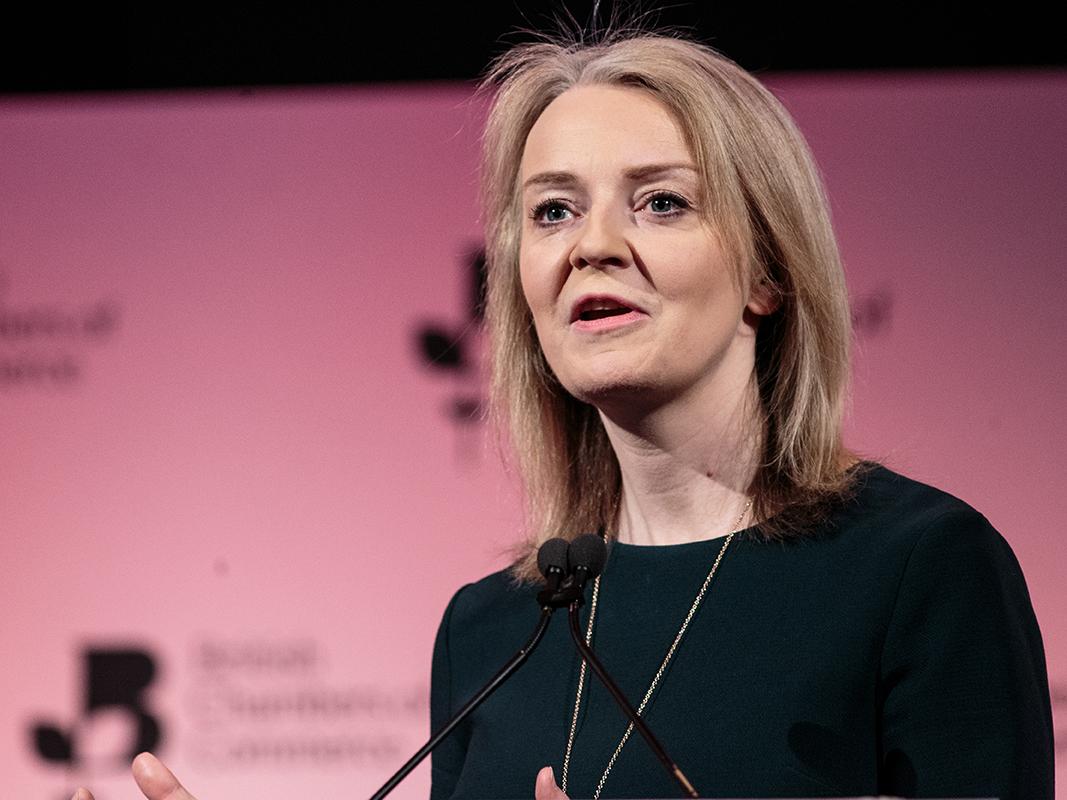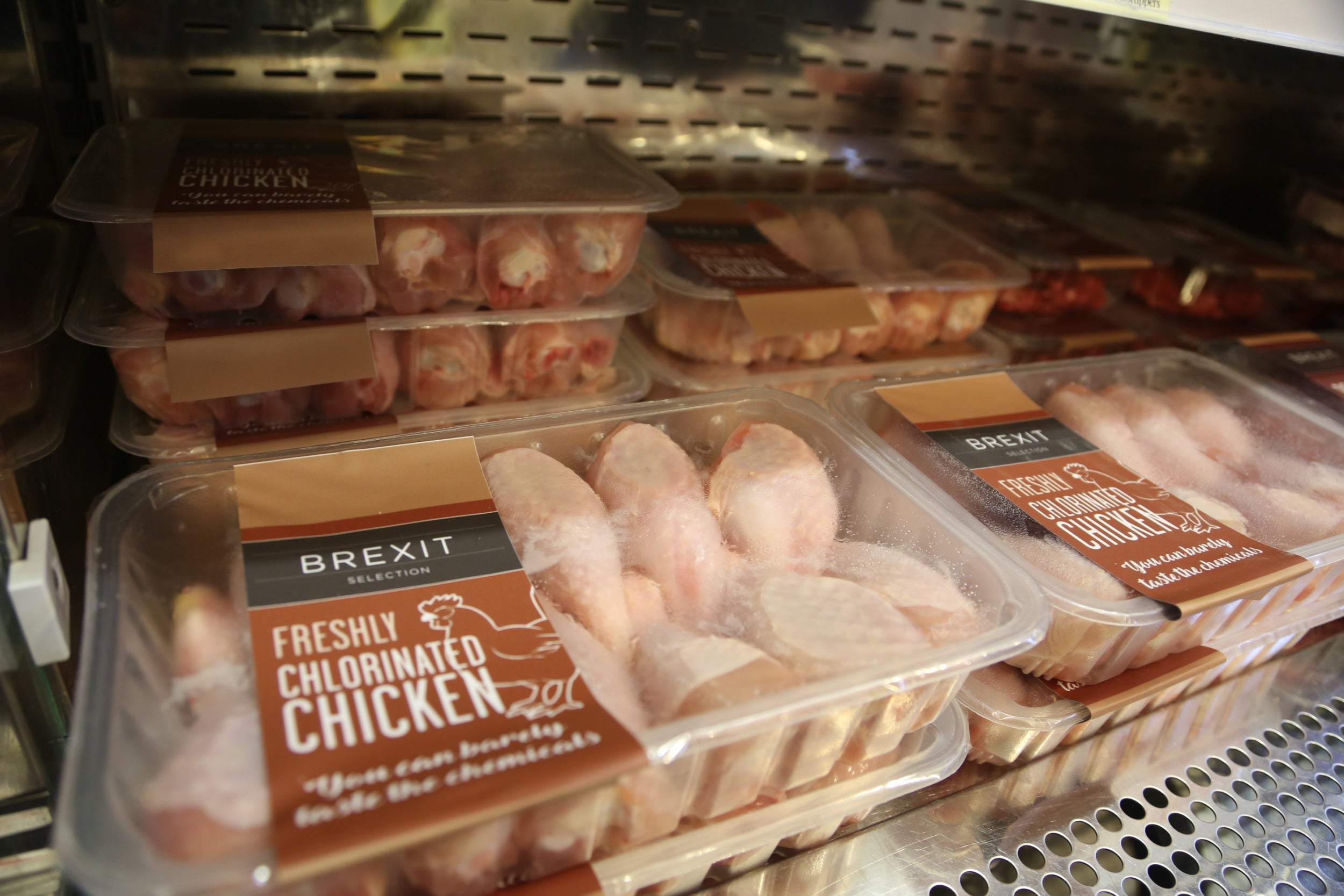An NHS sell-off, lower food standards and secretive corporate courts: the battles facing Britain's new trade secretary
Boris Johnson’s new trade secretary will be tasked with negotiating as many new trade deals as possible. Here are some fault-lines expected to emerge over the coming months

Your support helps us to tell the story
From reproductive rights to climate change to Big Tech, The Independent is on the ground when the story is developing. Whether it's investigating the financials of Elon Musk's pro-Trump PAC or producing our latest documentary, 'The A Word', which shines a light on the American women fighting for reproductive rights, we know how important it is to parse out the facts from the messaging.
At such a critical moment in US history, we need reporters on the ground. Your donation allows us to keep sending journalists to speak to both sides of the story.
The Independent is trusted by Americans across the entire political spectrum. And unlike many other quality news outlets, we choose not to lock Americans out of our reporting and analysis with paywalls. We believe quality journalism should be available to everyone, paid for by those who can afford it.
Your support makes all the difference.Boris Johnson has made fellow-Brexiteer Liz Truss his new trade secretary. Liam Fox, who was sacked from the role this week, made the mistake of backing Jeremy Hunt and fact-checking Boris’s spurious claims that the UK could continue to trade with the EU at no extra cost after a no-deal Brexit by using “GATT 24” accounting rules.
And so we have Truss, whose main input into trade policy during her political career was a rant about cheese.
Trade will be at the heart of Johnson’s Brexit plans. Whether we have no deal with the EU or a loose relationship, a key priority for the government will be a trade deal with the US and other non-EU countries, to signal that ‘Global Britain’ has no need of its European neighbours. However, Truss will face a bumpy road ahead as civil society groups, MPs and the British public all have their concerns about trade deals. Here are four battles she should prepare for.
1. MPs want a say
As things stand, MPs have no guaranteed vote or debate on a trade deals - even though they can affect a huge range of public policy. Our current system of agreeing trade deals dates back to an archaic, First World War convention, which we have not had to use in nearly 50 years because the EU has managed our trade.
Liz Truss will remember how furious MPs were - including many in her own party - when they thought they wouldn’t get a meaningful vote on the Brexit deal. Expect the same when the government announces negotiations with the US, Australia or India. Indeed, five select committees have already written reports demanding a new scrutiny process and the government effectively pulled the Trade Bill when it looked like MPs would force an amendment giving them a say on trade deals.
2. The NHS

If there is one thing the British people agree on, it is that the NHS must be protected. Trade deals put the NHS at risk: services chapters can make it impossible to reverse privatisation measures, and the investor court system (see ‘4’) means that foreign investors could sue the UK for introducing measures to protect the NHS.
This is a particular concern with a US trade deal, because Trump has emphasised that he wants the NHS on the table, and the government has sent mixed messages about how protected it will be. Given that Boris will be in a weak negotiating position with the US, it will be difficult not to give into American demands.
3. Food standards

Food poisoning rates are 10 times higher in the US than in the UK, and their method of chlorine-washing chicken has been shown to fail tests because it leaves unacceptable amounts of bacteria on the meat. The US approach to food regulation, which it calls science-based, is far more relaxed than the EU’s “precautionary” approach, which allows products and practices to be banned if there is a risk of harm. This is why the EU also bans certain GM crops and hormone-impregnated meats, as the effects on public health are not fully known.
British farmers are also likely to put up a fight. While they currently compete with EU farmers on a level playing field of common regulations, trade deals with the US, Australia or Brazil could mean that they are undercut by competitors in countries with much lower regulations. UK consumers and producers alike are proud of our high standards, and we can expect both groups to stand against any trade deals that undermine them.
4. Secretive corporate courts

One of the most controversial provisions of trade agreements is ‘Investor-State Dispute Settlement’, or ISDS. ISDS allows foreign investors to sue the UK for any policy changes that damage their profits. In other countries we have seen ISDS used by multinationals to challenge minimum wage raises in Egypt, pollution controls in Germany, sugar regulations in Mexico, health services in Slovakia and plain cigarette packaging in Australia.
If ISDS is included in trade agreements with places like the US, Canada and Australia, we could see investors from those countries suing the UK. This poses serious challenges for our efforts to tackle climate change. The government is officially committed to achieving net-zero carbon emissions by 2050, but this will undoubtedly require severe regulatory changes - such as banning fracking, taxing carbon or phasing out petrol engines. Any of these policies could be challenged under ISDS.
While Fox had little to do in his time as trade secretary, Truss may have bitten off more than she can chew. From the day the UK leaves the EU, post-Brexit trade deals will be a priority for Johnson, and Truss will be expected to deliver. On all four of these fronts, huge obstacles stand in her way, and she can expect some big battles.
David Lawrence is senior political adviser at the Trade Justice Movement, a UK coalition of 70 civil society organisations, calling for trade rules that work for people and the planet.
Join our commenting forum
Join thought-provoking conversations, follow other Independent readers and see their replies
Comments